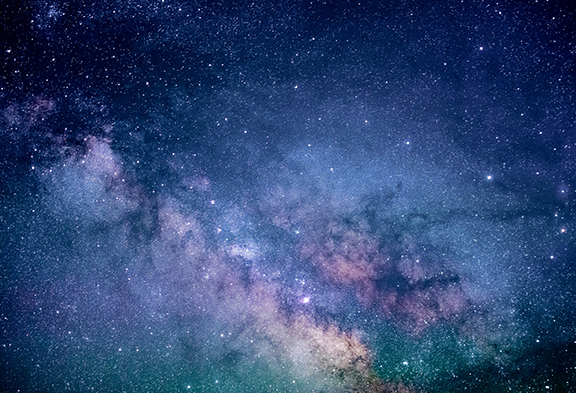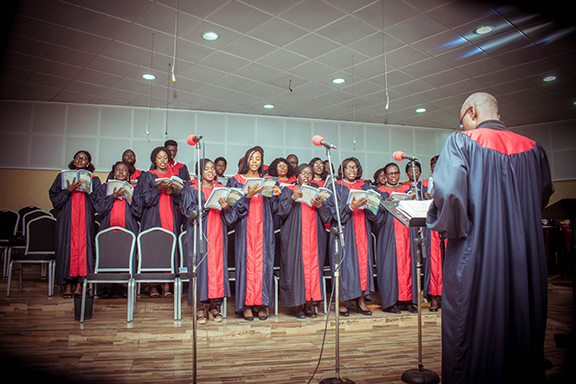by: Rev. Cameron Trimble
This past week, I was honored to be on a panel with Cantor Rosalie Will and Rabbi Sam Blustin at the Hava Nashira, an event hosted by the Union for Reform Judaism. The question before us was “What is Next in Worship?” We’ve made it through lockdown and shut down. We are regathering. What will this mean for our congregations?
We decided to expand the question to “What does it mean to gather people in pursuit of the Sacred? How can this new world allow us to be imaginative, and what are the shifts we might wonder about in this liminal time?”
Our time together was, of course, too short but I wanted to share some of my thoughts in the hopes that they might prompt ideas in you.
I’ve been the pastor in four congregations over my past 22 years of ministry. Through that experience, I have concluded that, at our best, congregations are Schools of Love, places where we can go to learn and experience the deep awakening of Love within us and being expressed through us. Of course, if that were true, would have a curriculum, a way or many ways of teaching the art of awakening, of becoming, of knowing. If that were true, surely we would see that evidenced in our public life together.
Part of our challenge: our systems produce what they are designed to produce. My deepest sense is that COVID has granted us the opportunity of a lifetime – literally. We have the chance to re-form our faith and our practices – carrying forward the best of our traditions but allowing their expression to be honest and authentic in the world we embody today.
Congregations at their best do three things:
- Congregations create a space for awe and wonder.

One of the great prices of modernity is the search for certainty. We are rewarded for reducing our world to a series of scientific observations and algorithms. But the cosmos, while understandable through our heads in many ways, is most powerfully experienced through our hearts.
Civil rights activist Rabbi Heschel said this beautifully, “The cosmos is a congregation in need of a Cantor….It is humanity who is the Cantor of the universe, and in whose life the secret of cosmic prayer is disclosed. When we sing we sing for all things…..The universe is a score of eternal music, and we are the cry, we are the voice. What would it mean to be the cantor for creation?”
When we can sing of the beauty of our world, we can also sing of our connection to all of creation, our interdependence, our Oneness. When we grasp that essential truth, we are freed – freed to love, to celebrate, to hope.
- Congregations allow for vulnerability and our full selves to show up.
Congregations at their best don’t merely invite our vulnerability but require it. Communal worship is a form of reorientation, realigning ourselves with our God, our internal sense of ourselves and each other. To show up with full honesty about who we are and how we are, we must create a space safe enough to risk being fully seen, fully known.
Within the human experience, transformation moves at the speed of trust. If our congregations understand themselves as Schools of Love, then the starting point for our teaching is in how we treat one another. If we are kind to one another, those joining us will learn to be kind as well. If we are vulnerable with one another, those around us will chance being vulnerable as well.
When we are able to manifest such a trustworthy space, we will all find a peace that passes understanding. We will find our grounding, trusting that our connection to one another draws out the best of each of us, and protects us from our worst. Then we will know “beloved community,” a world as God dreamed it to be.
- Congregations create a context for deep social bonding.

If we learned anything through our experience of this pandemic and increasingly divisive politics it is surely that our connection to one another matters. Our communities are only as strong as the friendships held between neighbors.
As we emerge, reweaving the relational fabric of our communities must be the top priority of faith communities. We have all suffered profound loss and carry deep grief. We have politicized the life-giving and life-saving resources that keep us all healthy and whole. If a congregation is a School of Love, then we should care about the ways we are harming one another and work to correct that.
On her podcast, On Being, journalist Krista Tippett interviewed astronomer, Dr. Jill Tarter about her work searching for life on other planets. Jill was the inspiration for the main character, Dr. Ellie Arroway, in the 1997 movie Contact staring Jody Foster. She has devoted her career to searching for signals sent from other technologically advanced cultures on other planets. Yes, it sounds crazy. You should listen to her explain it, and I bet she will convince you that it might be the best job on earth.
During the interview, I was struck by their conversation about thinking of ourselves as “earthlings.” While not the first title we think to apply to ourselves, Dr. Tarter suggests that understanding ourselves as earthlings might just save the world.
She says, “[This cosmic exploration] has the philosophical equivalence of holding up a mirror to every individual on this planet and saying, ‘See, all of you? You’re all the same, when compared to something out there that had evolved independently.’ And so I really like the potential of SETI (her organization) for changing people’s perspective and trivializing the differences among humans — differences that we’re so willing to shed blood over when, indeed, we are all human. We are all earthlings. We are all the same, compared to something else. And if you see yourself as an earthling before you see yourself as a Californian, then I think that sets the stage for tackling really difficult challenges on a global scale.”
It’s time to expand our consciousness of who belongs and how they belong. In this new moment in human history, we need a conversation that bravely goes beyond questions of musical styles or language … we need a deep rethinking of what we wish to create in the world. What kind of future are we shaping together?
- What would it mean to align our worship, liturgy, prayers and rituals around an anti-racism vision for justice, joy, and peace for all people, empowered by the Spirit of God?
- What would it mean to align our liturgy around an ecological vision for a regenerative relationship with the earth, so we stop plundering her resources and pumping her full of toxins?
- What would it mean to align our liturgy around a peace-making vision, building in our people the attitudes and skills that make for peace?
- What would it mean, in other words, to align our liturgy around the message of compassion and Love that all of our great traditions tell us are the truest expression of our being?
I think something extraordinary is at stake. We have reached a point in human evolution where we, in the words of philosopher Jean Houston, have “developed the capacity to destroy ourselves without the wisdom to know not to do so.”
So this art of “congregation-ing” isn’t just about keeping parishioners happy or increasing your own job satisfaction as a faith leader. A lot is at stake. I believe congregations can help save or destroy the world.

